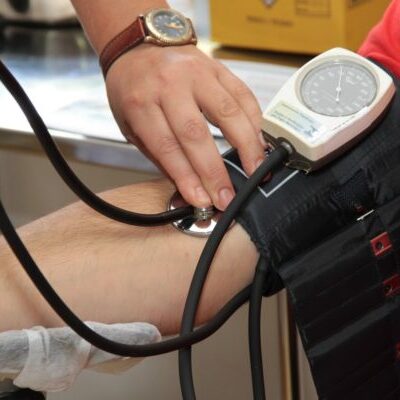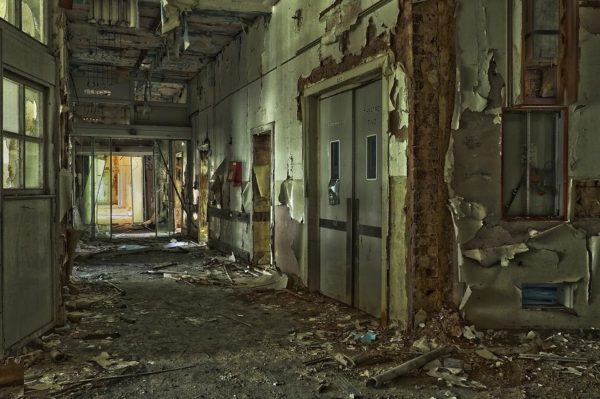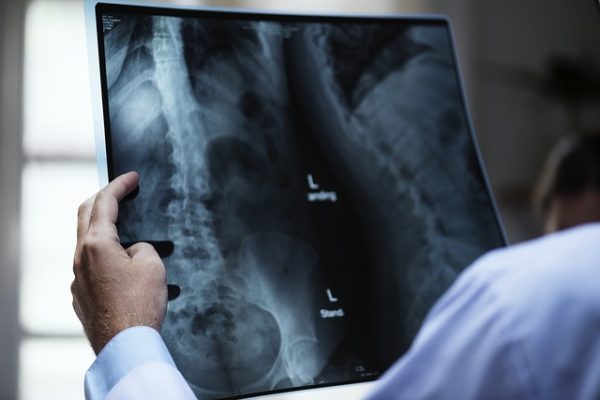Urgent care covers the NHS 111 services, walk-in centres and out-of-hours (OOH) GP services. There have been a number of failures with contracts awarded to private providers. Most recently, the collapse of the company Allied Healthcare, which owns the OOH provider Primecare, has shown just how precarious some of these companies are and how quickly contracts can collapse leaving the NHS to pick up the pieces.
Medvivo/HealthHero
Medvivo runs an OOH service based in Chippenham, Wiltshire. In 2019 the service received an outstanding rating from the CQC. In 2020, however, Medvivo was acquired by HealthHero, a large digital health company. Since then there have been serious concerns about new performance targets brought in April 2025, which GPs working for the service say are ‘morally completely wrong’.
Medvivo told its GP workforce in April that ‘allocation of shifts will go to those who are most able to meet’ the required targets. These requirements include triaging four cases per hour, ensuring 80% of telephone consultations are closed ‘with no onward referral’ to a treatment centre or home visit, and ensuring that less than 5% of cases are sent on to secondary care or the emergency department.
In June 2025 GP magazine Pulse published a series of anguished complaints from GPs who had been working for Medvivo – and were looking for alternative work, finding the company’s performance targets “unsafe for patients.” Medvivo has also reduced its Wiltshire contract back from ten bases in 2019 to just four.
GPs in Wiltshire also told Pulse they are worried about the company’s ‘significant’ shift over recent years towards a non-GP workforce: “an ‘almost exclusively GP workforce’ having been ‘gradually replaced’ with other allied health professionals.”
One GP who has worked in the Wiltshire Out Of Hours service for 16 years told Pulse he will not work for HealthHero any more, because the new targets leave “no room for going through cases more slowly, if the clinical circumstances require that.”
He added: “I’m not going to make a decision based on the imperative of the company. I’m going to act on the basis of what I feel is right.”
Primecare
Primecare are a good example of a company that was awarded large contracts, but failed to deliver and was financially unstable; the company has now abandoned contracts, often at short notice. Primecare is a subsidiary of Allied Healthcare, one of the UK’s leading homecare provider. In November 2018, the CQC issued a report on the financial status of Allied Healthcare; Allied Healthcare was due to make a large loan repayment at the end of November 2018 but there appeared to be insufficient funds. The report noted that the company might not continue trading after the end of November 2018. A letter to all councils and CCGs advised them to make contingency arrangements in the event of the company withdrawing from contracts.
The company’s Primecare subsidiary has contracts for out-of-hours (OOH) and urgent care throughout the midlands. CCGs and GPs have been sent letters advising them to find new providers of these services by the end of November.
In November 2018, GPs at 20 Birmingham practices were told that they needed to seek replacement OOH cover after Primecare gave them just 10 days’ notice that it will stop trading at the end of the month. Primecare also provides OOH and urgent care services in Walsall, Sandwell and West Birmingham, Herefordshire, and Nene, and is part of an integrated 111 and OOH contract covering 16 CCGs in the west Midlands.
Allied Healthcare is owned by German private equity investor Aurelius. In a statement the company said it was “actively exploring a range of options in order to minimise disruption to continuity of care, including the sale or transition of care and support services on a regional or contract-by-contract basis to alternative providers best placed to deliver care at a local level”.
Primecare has had difficulties delivering services in other areas, even before the financial situation reached a crisis. In January 2017, East Kent CCGs awarded Primecare one of the first integrated NHS 111 and GP out of hours services contracts, but after only seven months the company was placed in special measures. Primecare’s services in East Kent were rated inadequate by the Care Quality Commission. Failings included not assessing risks to patients’ health and not having enough staff to meet patient needs. The CCG has said that a review of the procurement process will also take place. Then in September 2017, Primecare announced that it will hand back the contract to the NHS mid-way through the three year contract in July 2018.
There were issues at the start of the contract; the 111 service in East Kent was originally meant to transfer to Primecare in September 2016 together with the out-of-hours service. However, the South East Coast Ambulance Service was asked to continue to provide the 111 service first until October 2016 and then until November 2016 with a phased handover to 10 January 2017. The second request for a delay to November was made with just 12 days’ notice. The delay was while the out of hours services, previously run by IC24, transferred to Primecare. The ambulance trust had no option but to continue to provide the 111 service despite it causing a strain on its service across the region.
Integrated Care 24 (IC24)
In November 2018, a leaked email revealed that IC24, the company awarded the out-of-hours contract for Kent, had only two doctors to cover out-of-hours GP services in an area with a population of more than 1.4 million. In the email to his boss, a manager called the staffing level in Kent unsafe. The email leaked to the HSJ said the two GPs in question were forced to decide who had priority for visits, including some patients in palliative care, besides their own duties during an overnight shift on a weekend in early September.
Then in January 2019, a leak from a member of staff in Norfolk, where IC24, runs out-of-hours provision, claimed just one GP had been covering the area, which has a population of more than 1.1million, for six hours in the early hours of the morning earlier this month. An internal report seen by The Eastern Daily Press, showed the GP in question had raised concerns that he was the only doctor on shift and needed back up. In the Norfolk and Waveney area covered by IC24, the company has not hit targets of answering 95% of calls within 60 seconds since November 2017.
Central Nottinghamshire Clinical Services
Primecare is not the first OOH provider to go under, in May 2016 Central Nottinghamshire Clinical Services, the private company in charge of OOH services across the East Midlands, announced it was filing for administration. It stopped its services in Leicester, Leicestershire, Rutland and north Nottinghamshire and they were transferred to another provider. The company also ran care home support services and these were transferred to Nottinghamshire Healthcare Trust.
Serco in Cornwall
An earlier scandal in OOH provision involved Serco. The company was responsible for OOH care in Cornwall, but in December 2013 Serco announced that its contract to provide out-of-hours care in Cornwall for Kernow CCG would end 17 months early in May 2015. The contract was dogged with controversy – Serco had to admit that some of its staff had falsified data to make the company’s performance appear better than it was and whistleblowers had raised concerns about poor staffing levels. In 2013, Serco unsuccessfully tried to sub-contract the work to Devon Doctors, the GP consortium that had failed to win the original bid; Serco had won the bid as it was cheaper.
See below for further reading on contract failures.







